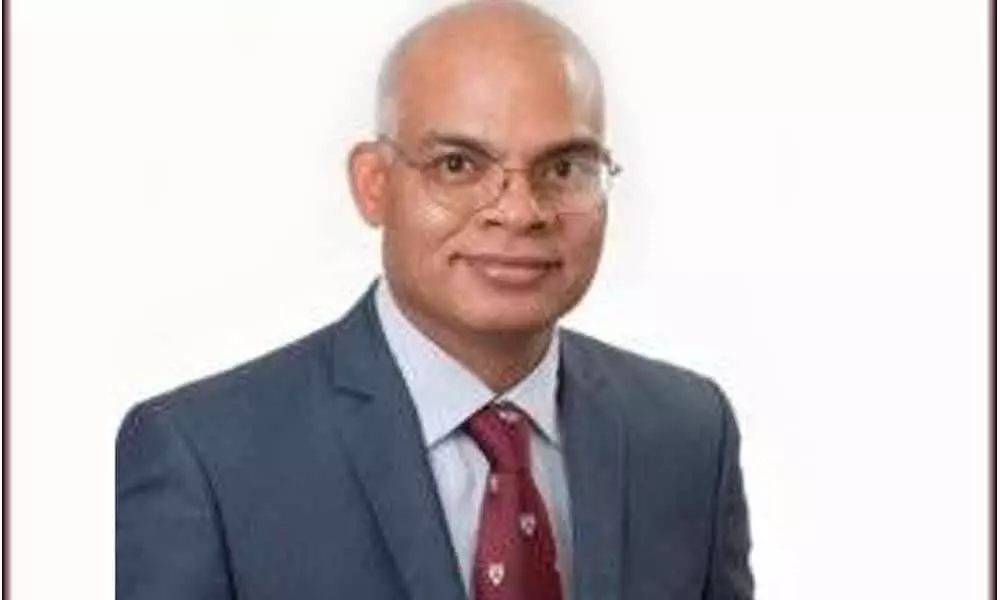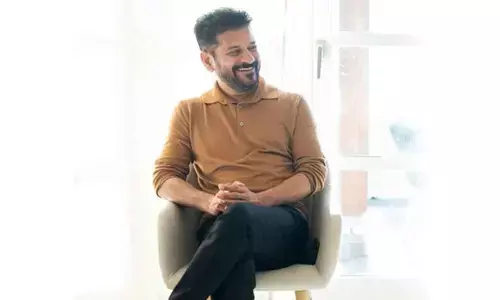Aurobindo EMS a lifeline for people in medical emergency

Papi Reddy
Aurobindo Pharma Foundation, in collaboration with UK govt's National Health Service (NHS), offering 108 & 104 medical services, which emerged as a boon to poor and needy people in Andhra Pradesh
What does Aurobindo EMS do?
Aurobindo EMS is a joint venture initiative of Aurobindo Pharma Foundation and the National Health Service (NHS) of the UK government. Aurobindo Pharma Foundation won the order from the Andhra Pradesh government for operating 108 ambulance services and 104 mobile medical units. We launched thesefree services in July 2020 when the Covid pandemic was at its peak. Aurobindo EMS unveiled 746 new ambulances and 656 new mobile medical units at one go at Benz Circle in Vijayawada. It is a kind of world record as that many ambulances weren't launched at one go anywhere else. Our company has over 6,000 employees who are highly motivated and take pride in what they are doing. The AP Government is giving top priority to these free services as they are nothing short of a boon to the poor and needy.
How do you operate 108 services?
We operate ambulance services in 731 segments (locations) round the clock. One ambulance is parked at every primary health centre in AP. Each ambulance, which has a driver and emergency medical technician (EMT), is equipped with stretchers, wheelchairs, etc. When someone calls for 108 ambulance, the call goes to ERC (Emergency Response Centre) which identifies ambulances nearby and assigns the case to one of them. The allocated ambulance rushes to the location and takes the patient to a nearby hospital. While the ambulance is on its way to hospital, EMT records vital signs and provides pre-hospital care to the patient. Our ambulances attend two calls everyminute across Andhra Pradesh. On an average, we serve as many as 2,400 patients daily.
How many cases did you handle till date?
Since July 2020 when we took over these services, we had attended over 15.78 lakh calls for emergency medical help.We majorly provide emergency medical services during accidents and also to pregnant women. It's a kind of lifeline for people in need of medical help, more so for pregnant women from tribal areas. On an average, our staff handles emergency deliveries in the ambulance itself once every three or four days. Our ambulances are equipped with facilities and well-trained technicians to take care of such emergencies. Till date, we helped over 2.3 lakh Covid patients. We also lost 40-50 employees to Covid as most of our employees were the first to come in contact with Covid patients. I am not exaggerating, but people still identify 108 service with late Dr YS Rajasekhara Reddy who took up this initiative first.
What kind of services are offered under 104?
At present, we are operating 656 mobile medical units (MMUs) which mainly focus on remote areas without access to healthcare. Each MMU comprises a doctor, data entry operator, driver and a van. Each MMU caters to the needs of 26 villages in a month, visiting one village a day. It provides free consultation, undertakes free basic medical tests and gives free medicines to people. The team also visits homes of patients who can't move out. On an average, 60-70 people use these services in a village. It's a kind of preventive healthcare. Furthermore, this service is immensely beneficial to old people and those suffering from chronic diseases like sugar and BP as they get free medicines on a regular basis. Under this, we provided 1.3 crore free consultations in the last three years. However, some people, especially those from middle class and above, are not using these services due to some inhibitions. The AP government is spending Rs 300 crore a year on this service besides supplying free medicines.
What new services have been lined up?
Aurobindo Pharma Foundation formed another consortium with a travel operator to take up Thalli-Bidda Express (102) under which mother and children are dropped back at home free of cost after delivery. It won the contract for this service from the AP Government. At present, we are taking pregnant women to hospitals in 108 ambulances, but they have to go back home on their own after the delivery. As many as 550 new vans will be deployed for this service. These vans will be stationed at government hospitals. We developed an app to track discharges from the government hospitals after the delivery.














